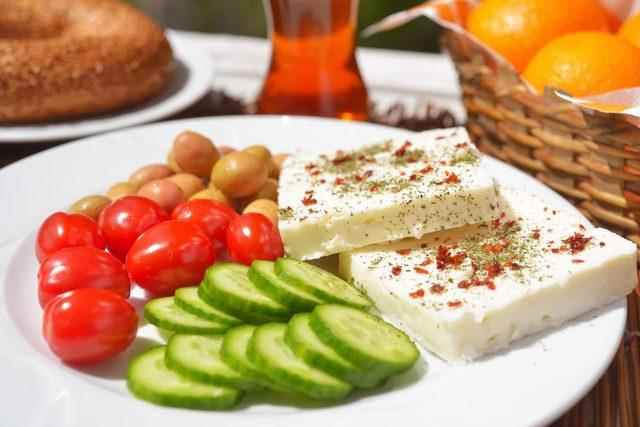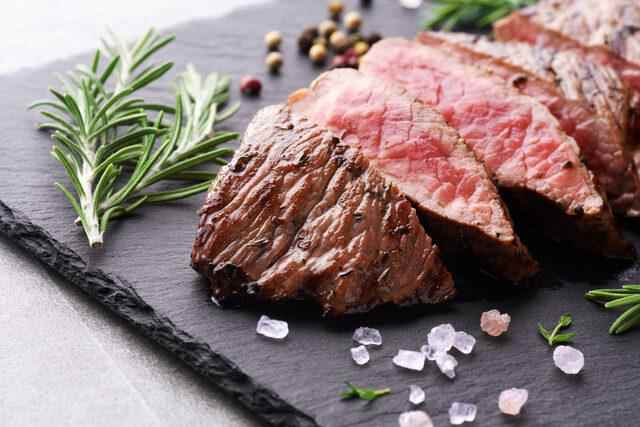Thanks to the right eating habits; While precautions can be taken against premature birth, low birth weight and many important health problems that may occur in the baby, serious complications such as diabetes, high blood pressure, pregnancy poisoning, osteoporosis, obesity and postpartum depression can be prevented in the expectant mother.
Acıbadem Kozyatağı Hospital Gynecology and Obstetrics Specialist Assoc. Dr. Elif Meşeci pointed out that general healthy eating rules are also valid during pregnancy and said, “You should implement a nutrition program that will ensure ideal weight gain, meet macro and micronutrient needs, support the immune system and provide modifications suitable for your health problems, if any. For this, half of your plate should contain colorful seasonal vegetables, 1/4 protein and 1/4 complex carbohydrates. Also, never forget to consume 2-2.5 liters of water during the day.” However, some nutritional mistakes made during pregnancy can seriously threaten the health of the mother and baby, and even worse, can lead to fatal consequences! Acıbadem Kozyatağı Hospital Gynecology and Obstetrics Specialist Assoc. Dr. Elif Meşeci told about the nutritional mistakes you should avoid for a healthy pregnancy; made important suggestions and warnings.
ONE TYPE OF NUTRITION
Inadequate and malnutrition during pregnancy almost invites the development of serious health problems in both the baby and the expectant mother. For example, iron deficiency can lead to anemia, which causes insufficient growth of the baby, as well as malaise, palpitations and heart failure in the mother.
While insufficient calcium intake prevents the healthy development of the bone-skeletal system in the baby, it can result in pregnancy poisoning and osteoporosis in the mother. Assoc. Dr. Elif Meşeci says, “The most important aspect of adequate and balanced nutrition during pregnancy is that the risk of cardio-metabolic diseases such as obesity, diabetes, high blood pressure or coronary heart diseases and intellectual capacity of the baby in adulthood is closely related to how healthy the mother is to eat.” Therefore, during pregnancy you and your baby; You should create a balanced-adequate nutrition program that will meet your energy needs with iron, calcium, vitamin D, vitamins A and B, omega-3 fatty acids (EPA+DHA), protein. Consuming vegetables and fruits according to the season is another important point that you should pay attention to.
EXCESSING Caffeine
Caffeine is excreted more slowly from the body during pregnancy and can cross the placenta and enter the baby’s bloodstream. Some studies have shown that high doses of caffeine consumption during pregnancy can cause miscarriage, premature birth and low birth weight. In addition, it can cause palpitations, increased blood pressure, anxiety, abdominal pain and diarrhea in the mother. The American Society of Obstetrics and Gynecology states that caffeine consumption during pregnancy should be less than 200 mg per day. Caffeine-containing beverages and foods include coffee, black tea, green tea, energy drinks, cola, and chocolate. There is 50-60mg of caffeine in a cup of Turkish coffee, 150-200mg in a cup of filter coffee, and 20-40mg in a cup of black tea.

NOT BREAKFAST
Stating that “Breakfast is essential for replenishing the glucose spent during the night and balancing blood sugar”, Dr. Dr. Elif Meşeci continues: “Not skipping breakfast is of particular importance during pregnancy. If this meal is skipped, the expectant mother may develop problems such as weakness, fatigue, headache and low blood pressure during the day. For breakfast, you can prepare a cereal bowl consisting of oily seeds such as oatmeal, milk or yoghurt, fruit, nuts and walnuts; You can also start the day with a vegetable omelet, cheese, whole grain bread, honey and a colorful seasonal salad”

FEEDING FOR TWO
A mother-to-be may think that her baby will be healthier and may make an important mistake such as feeding ‘for two’ during pregnancy. This false belief, which can cause unnecessary weight gain, does more harm than good to the expectant mother and the baby. Such that excessive weight gain during pregnancy; preterm birth, gestational diabetes, high blood pressure, pregnancy poisoning, growth-development abnormality in the baby, shoulder fixation at birth; In the postpartum period, it can cause many health problems such as thromboembolism, anemia, wound infections, low blood sugar in newborns and polycythemia (increase in red blood cells). Gynecology and Obstetrics Specialist Assoc. Dr. Emphasizing that the ideal weight gain during pregnancy is determined by the body mass index at the time of conception, Elif Meşeci says: Average weight gain required. Although it varies according to the weight of the expectant mother, there is usually no need for additional calories in the first trimester, 2-3. In the third trimester, an additional 300-450 calorie increase per day is sufficient,” she says.
STAY AWAY FROM THESE FOODS
Gynecology and Obstetrics Specialist Assoc. Dr. Elif Meşeci explains the foods you should avoid during pregnancy as follows:
Unpasteurized raw milk and dairy products, unpasteurized cheese: These foods, which may contain bacteria such as Listeria, can cause infection in the mother and baby.
Raw eggs: Foods such as mayonnaise, salad dressing, tiramisu and mousse made with raw eggs can cause salmonella infection.
Uncooked-undercooked meat, chicken, fish: Various bacteria and parasites can be found in these foods, especially toxoplasma, which can cause serious problems such as miscarriage and premature birth.

Bottom fish-shellfish with a high content of heavy metals such as mercury: Heavy metals can damage the baby’s brain and nervous system, impair intelligence and motor development. For this reason, you should prefer surface fish, namely sardines, anchovies, mackerel and horse mackerel, and if possible consume small fish such as anchovy with their skeletons. Thus, in addition to the omega-3 requirement, the need for calcium and vitamin D is also met by fish.
Processed, burnt, trans fat-containing foods (fast food) / canned foods: Foods in this group are not recommended to be consumed during pregnancy, as they can carry many bacteria such as listeria, especially delicatessen-smoked meats, and contain toxic additives.
